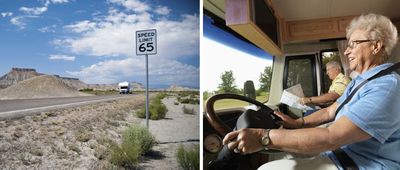Retire on the Road
Ever daydreamed about hitting the road in a recreational vehicle for your retirement? If so, you’re not alone. An estimated 1 million Americans have chosen to retire in an RV, spending at least part of the year on the road. It’s not just baby boomer retirees doing this, either; millennials, some with kids, are also embracing life on the road and living a minimalist lifestyle. Cheapism consulted several RVers, many of whom live on the road-year round, and asked them what advice they’d give to someone considering retirement in an RV.
Related: How to Live the RV Life for Cheap

























